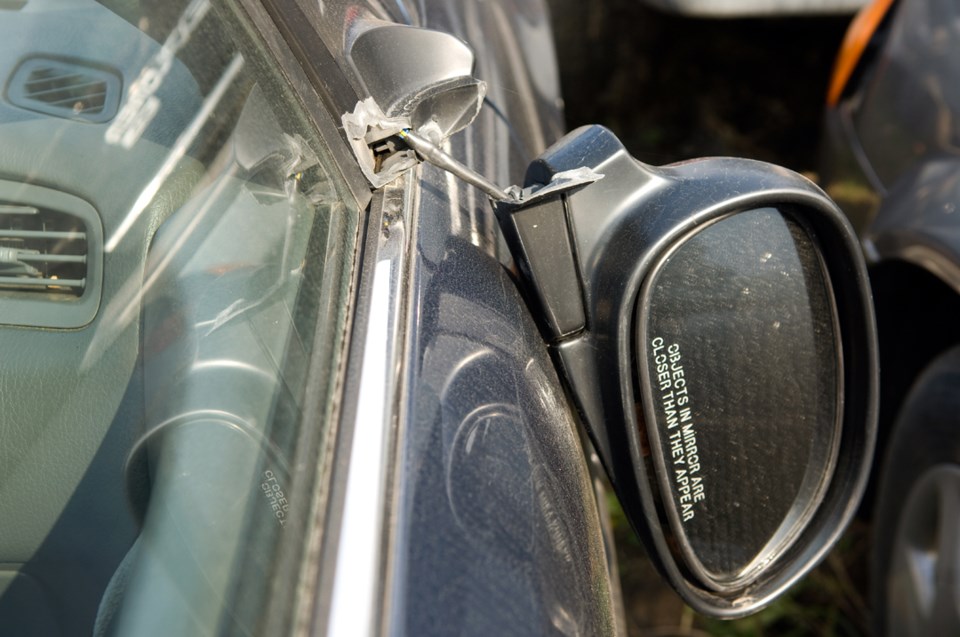A Burnaby driver has won a partial victory against ICBC over how much she was to blame for another car hitting the door of her parked car.
At about 9 p.m. on Oct. 2, 2022, Stephanie Manning was getting into her vehicle on the south side of Laurel Street, when another car going in the same direction her vehicle was facing hit her door with its passenger side mirror, according to a ruling by the Civil Resolution Tribunal this week.
ICBC held Manning 100 per cent responsible for the crash because the Motor Vehicle Act says people must not open vehicle doors on the street side "unless and until it is reasonable safe to do so" and they must not leave doors open on the street side "for longer than is necessary to load and unload passengers."
But Manning argued ICBC had acted "improperly or unreasonably" in assigning her all the blame.
She said she should be held zero per cent responsible instead.
Tribunal member Alison Wake agreed with Manning that ICBC had acted improperly and unreasonably in the case because it had refused to consider evidence from one of Manning's neighbours, DH, who saw the accident.
ICBC had told the witness it didn't need a statement from them because the witness knew Manning.
"ICBC says it determined that DH was 'well known' to Ms. Manning and so they were not considered an independent witness, because their statement could be biased," states the Nov. 14 ruling.
But Wake ruled that was improper and unreasonable.
"I find the mere fact that DH and Ms. Manning know each other does not, on its own, mean that DH's statement would lack credibility to the extent that ICBC should not even consider it," Wake said.
Wake noted there was no dispute Manning's neighbour had seen the crash.
But Wake didn't go as far as assigning zero blame to Manning.
While there was no evidence Manning had left the door open longer than was necessary to get in, according to Wake, she found Manning had not established it was reasonably safe to open her door when she did, and that contributed to the crash.
In the end, Wake ruled Manning was more to blame for the accident because she committed the first negligent act by opening the door.
She assigned Manning 75 per cent of the blame and the other driver 25 per cent.
Because she proved she was less responsible than ICBC had assessed, Wake ruled Manning's claim had been successful and ordered ICBC to pay Manning's tribunal fees and redistribute the blame.
Follow Cornelia Naylor on Twitter @CorNaylor
Email [email protected]



